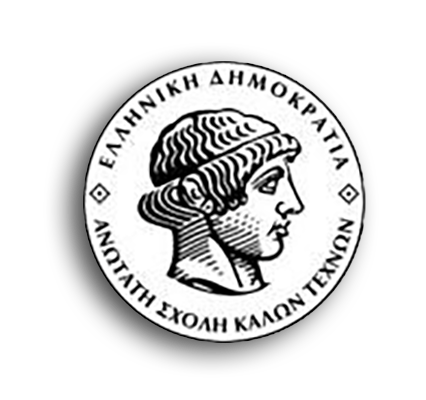 Athens School of Fine Arts Athens School of Fine Arts
www.asfa.gr
Athens School of Fine Arts (ASFA) is one of the oldest academic institutions of modern Greece (1843) and one of the most important Higher Education Institutions for Visual Arts and Art Theory and History in Greece. ASFA consists of two departments, the Department of Fine Arts and the Department of Theory and History of Art. The educational program covers doctoral studies and provides the following Master Degrees: «Theory and History of Arts», «Fine Arts», «Digital Arts», as well as one Greek-French Master Degree with title «Art, Virtual Reality and Multiuser Systems of Artistic Expression» in collaboration with Paris-8 University. Research is conducted in visual arts, digital arts, art education, as well as philosophy, literary history and criticism. ASFA keeps up with recent advances by constantly incorporating contemporary educational practices and by developing various cultural activities in ASFA’s premises which are open to the public, such as the “N. Kessanlis” exhibition hall (4000 m²), and one of the biggest Libraries in Greece specialized in Arts, Theatre and Cinema. ASFA, also, has Annexes throughout Greece, where international workshops and artistic projects are organized (e.g. in Delphi, in Mithymna (Lesvos), in Mykonos, in Rethymno (Crete), in Monodendri (Ioannina), in Rhodes and in Hydra). ASFA is developing extended collaborations both in Greece and abroad, in educational, artistic and research fields. Since 1996, ASFA has successfully completed more than 20 projects funded by the European Social Fund and the European Regional Development Fund.
Activities
ASFA is very experienced in the organization of artistic events and various educational activities (e.g. workshops, seminars, interdisciplinary conferences) which are supported by the facilities mentioned above (e.g. Library, Annexes, Theatre and Cinema.
The key persons involved in the project have been actively involved in the organization of international workshops between ASFA, Paris-8 and other European Institutions, in the scope of Erasmus Intensive Programmes and Summer Universities (2004-2010). Most of these took place in the Annexes of ASFA. The outcomes of these activities led to the establishment of the Greek-French Master “Art, virtual reality and multiuser systems of artistic expression”, between ASFA and Paris-8 University, and have set the bases for the @postasis concept, as they concerned the investigation of virtual spaces for artistic collaboration.
|
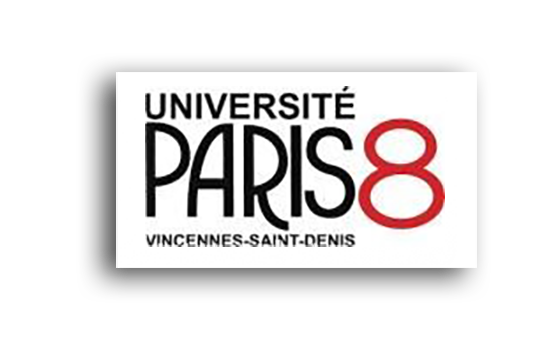 Paris-8 University Paris-8 University
www.univ-paris8.fr
University Paris 8 (UP8) is a high education and research center in humanities, social sciences and Arts, computer sciences and economic sciences. With over 30% of international students among its 22,000 ones, the UP8 is actually the most international of French universities, which gave birth to the concept of “world university” that defines it today. The UP8 is actively working to promote international cooperation actions in favor of a continuous demand in both teaching and research fields. UP8 has developed expertise in international relations and management research to assist students, teachers and staff in all their international projects. There are double degrees including 13 active ones and 2 degrees offshore. In the development of these projects, UP8 involved in an increasing number of European projects such as Erasmus+ Strategic Partnership, Erasmus+ Capacity Building, Erasmus+ Joint degrees, Erasmus Mundus, Erasmus+ International Credit Mobility, EuropeAid, etc..
Activities
Created in 1984, ATI was one of the first program teaching CGI, created by pioneers of computer generated art in France. The initial philosophy remained through the years and the huge technological and practical changes in the field.
Because of the non existence of professional software, students programmed their 3D pictures with Rodin, developed by Hervé Huitric and Monique Nahas, and with Anyflo developed by Michel Bret. The most technically advanced students wrote their οwn rendering and animation engine. With the rise of professional software (Softimage, then Maya), ATI developed a degree using those new tools in an artistic perspective. But it kept on providing the students with a deep understanding of the "inside" of the tools, the ability to modify it to their will: like so, they get to develop their own tools, scripts and plugins to push their creativity farther.
In the nineties, research ear by the INREV laboratory on themes like AI or virtual actors were introduced in the courses. In the 2000s, the introduction of real time engines opened up new courses on interactivity and games, highlighting again the transfer of knowledge between research and teaching.
The originality of this school and the ties it made with the industry contributed to the birth of new kind of jobs, boosted the starting career of students. Today, the close relationship between the lab, the school and the professionals, as well as our strong artistic and technical philosophy, keep us going forward, experimenting new hardware, software and technics. A 3D/CGI generalist degree aimed toward artistic expression.
- A program rich of 30 years of existence within a French public university, with extremely affordable tuition fees (less than 500 euros a year, or free with a scholarship).
- A solid philosophy based on the acquisition of both advanced technical and artistic skills.
- Very articulated courses, suited for industry-proof knowledge and innovation.
- Entry level : minimum 2 years of an undergraduate program.
- A recognized degree in the industry, a school that is taking actively part of the French network of animation schools (RECA).
- Close ties with the INREV research laboratory (CGI and virtual reality) and its cutting edge equipment.
|
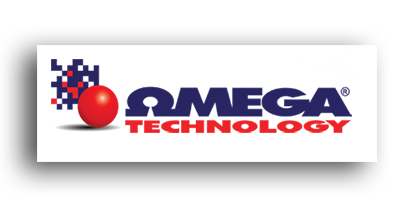 Ωmega Technology Ωmega Technology
www.omegatech.gr
Founded in 1985, Omega Technology is an experienced and well known IT provider company in Greece. The Company serves Greek public bodies, enterprises and other organizations with technology and services made possible by its 30 years of experience. Its solutions include 3D applications, assisted living solutions, tailor-made applications for people with disabilities, as well as e-learning platforms, e-commerce applications, document and knowledge management systems. In the field of education and training, the company uses game elements and techniques to motive engagement, participation and potentially drive behavior towards predefined goals. To this endeavor the company participates to a number of National and European Research projects where it applies gamification and game mechanics in different domains. The company provides also expertise in Systems Integration and Communications as well as practical expertise in the fields of Validation and Trials. It is also offering a broad range of management and services including consulting, research and development, digitization, annotation and preservation of content, hardware supply and technical support. The company’s research department is active in the R&D arena, in close cooperation with Academia and Research Institutes, running several R&D projects and market validation projects. Having worked with different technologies and communication protocols in its latest research activities around Virtual Reality, the company has managed to integrate different digital screens (AR and VR) in its solutions. The company employs 20 permanent staff and a number of external experts. Its offices are located in Athens and are fully equipped with the latest technological advancements (Hardware and Software). On European level, Omega Technology was recently coordinator of the H2020-ICT-2014-1 project with Acronym Q-Tales, for the publishing sector using collaboration and online authoring tools, is technical partner in I-SUPPORT (H2020-PHC-2014-single-stage) project relevant to use of robotic soft arms for disabled people to bath on they own, was the applicant of the Life Long Learning Project Virtual Working Environments - VWE(511830-LLP-1-2010-1-GR-KA3-KA3MP), coordinator of the EU research Project E-SERVICE4U (EUROSTARS E!4277) relevant to Grid/Web services on Cloud for job matching, coordinator of the “e - ceramics” project under the Ten-Telecom EU program, as well as core technical partner at the e-Ten project “Job-Rotation” (Ref: 029316). Today is core technical partner, responsible for Virtual Reality tools in the STORIES (Stories of Tomorrow - Students Visions on the Future of Space Exploration) project in the framework of H2020 - ICT-22-2016. The company is certified with ISO 9001:2008 and ISO 14001.
Activities
Omega Technology has long experience in Education and Training. The last years the company uses its expertise in 3D games development to use game elements and techniques in non-game contexts to motive engagement, participation and potentially drive behaviour towards predefined goals. To this endeavour the company participates to a number of National and European Research projects where it applies gamification and game mechanics in different domains.
Regarding EU funded projects, Omega Technology was recently coordinator in project Q-Tales (H2020-ICT-2014-1 – No: 645588) that has to do with the development of interactive e-books for children, was core technical partner at Leonardo TOI project CGR(2010-1- GR1-LEO 05-03932) relevant to training for the ceramics sector, and applicant and core technical partner in the LLP-KA3 project VWE(511830-LLP-1-2010-1- GR-KA3-KA3MP) that had to do with the training of low skilled adults using 3D scenarios. Recently was also technical partner in project AGRO-JRP (Ref: 2013-1-TR1-LEO05-47600) relevant to training for the agriculture sector.
At national level the company has developed a series of training projects including: Suicide prevention serious game: Developed for Klimaka NGO, a non-profit organization that operates mental health units such as mental health homes and residencies, protected residencies, mental health mobile units and day care centers. Based upon specialized mental health services, Klimaka develops actions to prevent social exclusion. In the aforementioned game the user is trying to find collecting evidences and interviewing family members, colleagues and friends, the reason why a person commit suicide. Game-IT: Platform of Semantic Knowledge Management and Creation of Interactive Training Scenarios using advanced multiplayer gaming technologies. The coordinator of the project was Doukas School. e-Audition: e-Audition platform and educational game for Primary school kids for the Greek National Opera. Hellenic Pedagogical Institute: Customized School Books (Primary A&B graders) for kids with intellectual disabilities (Environment, Anthology, Language and Maths).
|
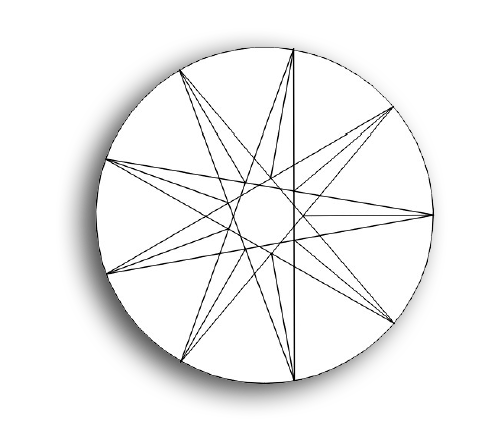 ARGENIA ARGENIA
www.argenia.it
ARGENIA is a not-profit association that works in the field of social utilities, firstly in the cultural field of Generative Art. It organizes Workshops, conferences, teaching activities, websites and publications of books, Journal and papers regarding the Digital Civilization and, mainly, Generative Art and Design, Poetry and Poetic Logic.
Activities
Argenia is organizing workshops, conferences, teaching activities, websites and publications of ebooks and papers regarding Generative Art, Generative Design, Poetic logic, Poetry and Virtual Spaces and Unique Objects of a recognizable species. The involved persons, Celestino Soddu (responsible for this project) and Enrica Colabella (President of Argenia association) have a long experience in the field of Generative Art. They founded the Generative Design Lab at Politecnico di Milano University, organized the Generative Art International annual conference starting from 1998. They are also the directors of GASATHJ, the Generative Art Science and Technology hard Journal.
|
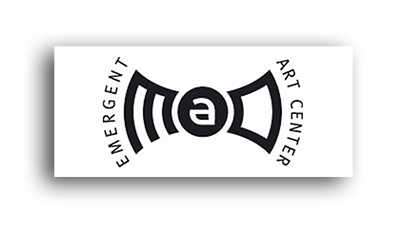 MAD Emergent Art Center (MAD) MAD Emergent Art Center (MAD)
madlab.nl MAD
is an Organization targeted at connecting artist practices and digital innovation with the purposes of social innovation. We work with around ten professionals and volunteers on developing communities and producing meetups, hachathons and exhibitions. The expertise areas are the open data platforms, internet of things, digital reality, and interactive installations, in the context of the smart cities and smart citizens.
Activities
ΜΑD has a large experience on digital collaborative artistic platforms like Second Life, Upstage!, Image radio etc. In physical platforms communities, MAD is actively involved in developing new formats. The expertise for MAD is in fields like: software developments, electronics engineering, interaction design, art curatorial and digital media.
|
| |